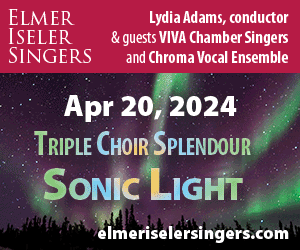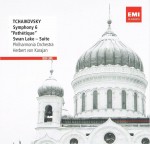 There remains something very special about the EMI recordings produced by Walter Legge of the, actually “his” as it turned out, Philharmonia Orchestra, particularly but not only those with Herbert von Karajan before his ascent to the Berlin Philharmonic. Legge had been producing Karajan’s recordings since the conductor’s first post-WWII 78s with the Vienna Philharmonic beginning with the Beethoven Eighth in 1946. The Ninth was recorded in 1947 and although Karajan has recorded it many times since then this is my favourite version (EMI 72434 76878). There is an air of expectant optimism (which is what this symphony is all about) not present elsewhere in the catalogue. Legge founded the Philharmonia Orchestra in 1945 with the expectation that he and Beecham would run it together. The two fell out and the orchestra became essentially a recording orchestra, producing landmark recordings with conductors and soloists of now legendary fame. Karajan’s first concert with them, April 11, 1948, included the Schumann piano concerto with Dinu Lipatti which they recorded for EMI later that month. All but a few of the EMI Philharmonia/Legge recordings have been re-issued and available on CD, attesting to the excellence of the performances by what had become one of the best orchestras in the world and the instantly engaging EMI sound, whether the earlier monaural or the later stereos. In all of them there is a sense of listening in on a formal performance and not a recording of musicians making a recording. Such is a new re-issue of Tchaikovsky’s Sixth Symphony and the suite from Swan Lake recorded in 1955/56 with Karajan and the Philharmonia (EMI 6022992). This is the third of Karajan’s seven recordings of the Pathétique and the most satisfying in the sense described above with music making of the very highest quality. Most impressive in both works are the flowing tempos without any bumps, the unanimous strings, outstanding brass and winds all captured in the best analog sound. I enjoyed it immensely.
There remains something very special about the EMI recordings produced by Walter Legge of the, actually “his” as it turned out, Philharmonia Orchestra, particularly but not only those with Herbert von Karajan before his ascent to the Berlin Philharmonic. Legge had been producing Karajan’s recordings since the conductor’s first post-WWII 78s with the Vienna Philharmonic beginning with the Beethoven Eighth in 1946. The Ninth was recorded in 1947 and although Karajan has recorded it many times since then this is my favourite version (EMI 72434 76878). There is an air of expectant optimism (which is what this symphony is all about) not present elsewhere in the catalogue. Legge founded the Philharmonia Orchestra in 1945 with the expectation that he and Beecham would run it together. The two fell out and the orchestra became essentially a recording orchestra, producing landmark recordings with conductors and soloists of now legendary fame. Karajan’s first concert with them, April 11, 1948, included the Schumann piano concerto with Dinu Lipatti which they recorded for EMI later that month. All but a few of the EMI Philharmonia/Legge recordings have been re-issued and available on CD, attesting to the excellence of the performances by what had become one of the best orchestras in the world and the instantly engaging EMI sound, whether the earlier monaural or the later stereos. In all of them there is a sense of listening in on a formal performance and not a recording of musicians making a recording. Such is a new re-issue of Tchaikovsky’s Sixth Symphony and the suite from Swan Lake recorded in 1955/56 with Karajan and the Philharmonia (EMI 6022992). This is the third of Karajan’s seven recordings of the Pathétique and the most satisfying in the sense described above with music making of the very highest quality. Most impressive in both works are the flowing tempos without any bumps, the unanimous strings, outstanding brass and winds all captured in the best analog sound. I enjoyed it immensely.
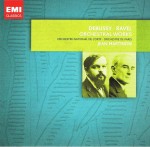 Jean Martinon was a superlative conductor excelling in the repertoire of the 20th century, especially French composers, as his recordings will attest. During his time as the Chicago Symphony Orchestra’s music director (1963-68) he made only a couple of LPs of Ravel but when he returned to France was engaged by EMI to record the orchestral works of Debussy with the Orchestre National de ORTF in 1973 and then the music of Ravel with the Orchestre de Paris through 1974. These renowned performances and recordings have since seen many incarnations but now EMI has grouped them all together in an irresistible 8-CD box, Debussy, Ravel Orchestral Works at an ultra budget price (EMI 70444421). There are 18 of Debussy’s well-known and some lesser known works and 15 by Ravel including the obvious titles plus the complete Daphnis et Chloe (with the Chorus of the National Opera) and the two piano concertos. Without exception, the performances are commanding and authoritative and the naturally balanced recordings, made in Paris’ Salle Wagram, are a credit to France’s famed producer, René Challan.
Jean Martinon was a superlative conductor excelling in the repertoire of the 20th century, especially French composers, as his recordings will attest. During his time as the Chicago Symphony Orchestra’s music director (1963-68) he made only a couple of LPs of Ravel but when he returned to France was engaged by EMI to record the orchestral works of Debussy with the Orchestre National de ORTF in 1973 and then the music of Ravel with the Orchestre de Paris through 1974. These renowned performances and recordings have since seen many incarnations but now EMI has grouped them all together in an irresistible 8-CD box, Debussy, Ravel Orchestral Works at an ultra budget price (EMI 70444421). There are 18 of Debussy’s well-known and some lesser known works and 15 by Ravel including the obvious titles plus the complete Daphnis et Chloe (with the Chorus of the National Opera) and the two piano concertos. Without exception, the performances are commanding and authoritative and the naturally balanced recordings, made in Paris’ Salle Wagram, are a credit to France’s famed producer, René Challan.
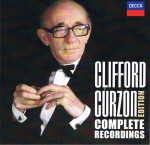 I don’t suppose that these days when collectors express their preferences among competitive versions of certain works it is likely that Clifford Curzon would come readily to mind and yet in the day he was a frontrunner in most of the repertoire that is to be found in a new collection from Decca of all his recordings made for them since 1937, augmented with interviews and recitals as late as 1980 (4784389, 23 CDs + 1 DVD). Curzon possessed impeccable and unerring taste and musicianship and one can sense that every note is played with the assurance of a mind totally in control. Surprisingly, on first hearing, the all-Liszt recital from Vienna’s Sofiensaal (1963) seemed to be too closely miked, contributing to the impression that Curzon’s interpretation was ill-conceived. But on second hearing everything came into perspective, revealing a towering version of the structured B Minor Sonata and pristine versions of the shorter pieces. In addition to many solo recitals including Schubert, Schumann and Brahms, there are concertos by Mozart, Beethoven, Brahms, Grieg, Tchaikovsky, Rachmaninoff, de Falla and the dashing Scherzo by Litolff. Time has not dimmed these superb recordings. The full contents can be seen on deccaclassics.com.
I don’t suppose that these days when collectors express their preferences among competitive versions of certain works it is likely that Clifford Curzon would come readily to mind and yet in the day he was a frontrunner in most of the repertoire that is to be found in a new collection from Decca of all his recordings made for them since 1937, augmented with interviews and recitals as late as 1980 (4784389, 23 CDs + 1 DVD). Curzon possessed impeccable and unerring taste and musicianship and one can sense that every note is played with the assurance of a mind totally in control. Surprisingly, on first hearing, the all-Liszt recital from Vienna’s Sofiensaal (1963) seemed to be too closely miked, contributing to the impression that Curzon’s interpretation was ill-conceived. But on second hearing everything came into perspective, revealing a towering version of the structured B Minor Sonata and pristine versions of the shorter pieces. In addition to many solo recitals including Schubert, Schumann and Brahms, there are concertos by Mozart, Beethoven, Brahms, Grieg, Tchaikovsky, Rachmaninoff, de Falla and the dashing Scherzo by Litolff. Time has not dimmed these superb recordings. The full contents can be seen on deccaclassics.com.
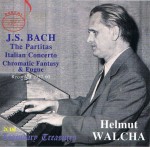 Helmut Walcha was internationally respected as an interpreter of the music of Bach and other composers of the baroque era. DG (DGG at the time) and EMI had both featured him twice in almost the entire Bach keyboard repertoire. For DG he was Walcha the organist, for EMI the harpsichordist. It is interesting to note that this authoritative performer was totally blind from the age of 16 and possessed the astonishing ability to have memorized his repertoire from hearing others play. His commanding performances are luminous and transparent. The sound of the harpsichord on a new DOREMI release of performances from 1957–1960 is detailed and pleasant although some may have reservations that in these recordings Walcha, unlike most interpreters, observes no repeats. He plays a modern Ammer harpsichord. Bach: Six Partitas, BWV 825-830; Italian Concerto; Chromatic Fantasy and Fugue in D Minor (DHR-7985/6, 2 CDs).
Helmut Walcha was internationally respected as an interpreter of the music of Bach and other composers of the baroque era. DG (DGG at the time) and EMI had both featured him twice in almost the entire Bach keyboard repertoire. For DG he was Walcha the organist, for EMI the harpsichordist. It is interesting to note that this authoritative performer was totally blind from the age of 16 and possessed the astonishing ability to have memorized his repertoire from hearing others play. His commanding performances are luminous and transparent. The sound of the harpsichord on a new DOREMI release of performances from 1957–1960 is detailed and pleasant although some may have reservations that in these recordings Walcha, unlike most interpreters, observes no repeats. He plays a modern Ammer harpsichord. Bach: Six Partitas, BWV 825-830; Italian Concerto; Chromatic Fantasy and Fugue in D Minor (DHR-7985/6, 2 CDs).
 What a pleasure to hear the Bach Six Suites for Solo Cello played with such unusually heartfelt expressivity and warmth as is heard from Antonio Janigro on another new DOREMI collection (DHR-8014/6, 3 CDs). A singing tone, perfect intonation, beautiful articulation and a refined style were his trademarks. In the three gamba sonatas, BWV1027 – 29, with harpsichordist Robert Veyron-Lacroix he is similarly impressive. In the mid 1950s he made a recording of the popular Boccherini B-Flat Major Cello Concerto, however here we have the young Janigro from 1948 ... rare and captivating. A splendid collection, faithfully remastered, the suites are derived from 1954 Westminster LPs. Here is beautiful music making in the grand sense and not simply for cello lovers.
What a pleasure to hear the Bach Six Suites for Solo Cello played with such unusually heartfelt expressivity and warmth as is heard from Antonio Janigro on another new DOREMI collection (DHR-8014/6, 3 CDs). A singing tone, perfect intonation, beautiful articulation and a refined style were his trademarks. In the three gamba sonatas, BWV1027 – 29, with harpsichordist Robert Veyron-Lacroix he is similarly impressive. In the mid 1950s he made a recording of the popular Boccherini B-Flat Major Cello Concerto, however here we have the young Janigro from 1948 ... rare and captivating. A splendid collection, faithfully remastered, the suites are derived from 1954 Westminster LPs. Here is beautiful music making in the grand sense and not simply for cello lovers.



